Master Spice Techniques for Maximum Flavor in Every Dish
Scientifically-backed spice handling methods transform ordinary meals into extraordinary culinary experiences. Proper spice technique unlocks volatile oils, enhances flavor compounds, and balances heat through precise timing and preparation. Here are 10 essential techniques used by professional chefs to maximize flavor in every dish.
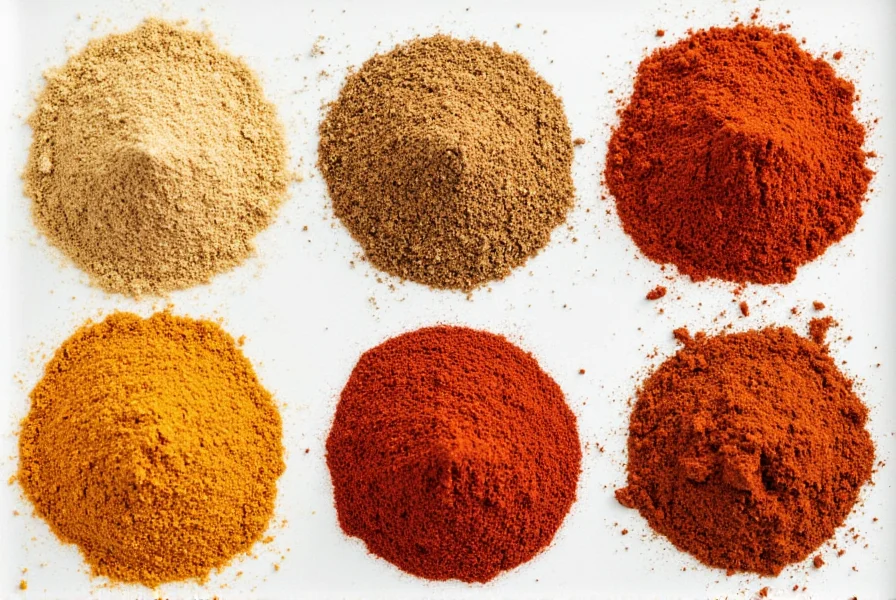
Hack #1: Dry Toasting Spices Before Use
Dry toasting releases volatile oils trapped inside whole spices through the Maillard reaction, creating new flavor compounds while reducing bitterness in spices like cumin and coriander. This process increases aromatic compounds by up to 40% compared to raw spices.
- How to do it: In a dry skillet over medium heat, toast whole spices until fragrant (about 1–3 minutes). Keep moving them around so they don't burn.
- Pro tip: Toast before grinding for more depth; grind after to preserve freshness. For maximum aroma release, toast whole spices 30 seconds before grinding.
Context boundaries: Dry toasting is ineffective for pre-ground spices (instant burning) and unsuitable for delicate spices like saffron or dried chilies beyond 15 seconds. As documented in the Culinary Institute of America's Professional Cooking (10th ed., p. 327), "over-toasting transforms volatile compounds into acrid notes, particularly in capsaicin-rich spices." Always adjust duration based on spice density—seed spices (mustard, cumin) tolerate 2-3 minutes while leaf spices (bay leaves) require ≤60 seconds.
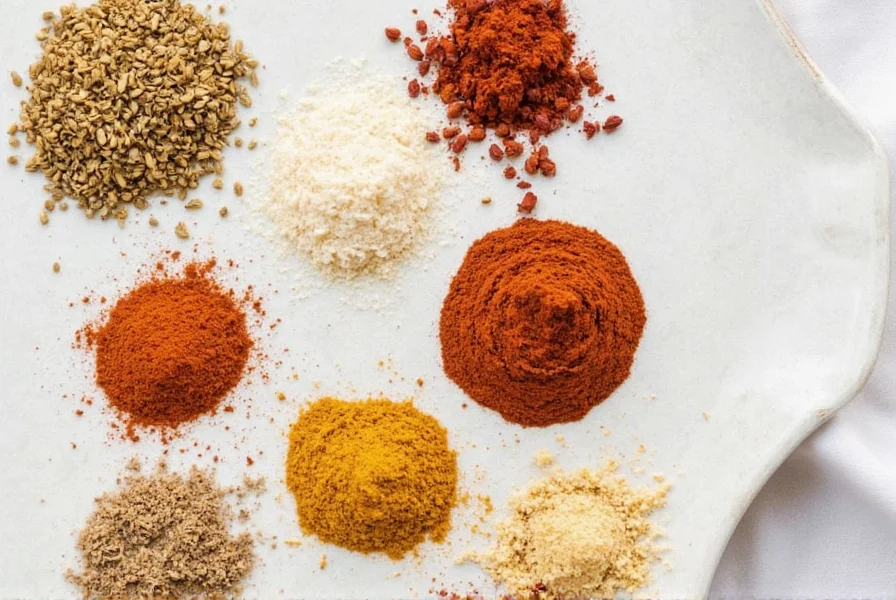
Hack #2: Infuse Oils with Whole Spices
Infusing oils with spices creates complex flavor layers that penetrate ingredients more effectively than surface seasoning. The heat activates fat-soluble flavor compounds that don't dissolve in water-based dishes.
| Oil | Best Spice Matches | Infusion Time |
|---|---|---|
| Coconut Oil | Curry leaves, mustard seeds, turmeric | 2–3 minutes |
| Olive Oil | Garlic, chili flakes, rosemary | 3–5 minutes |
| Sesame Oil | Star anise, Sichuan pepper, ginger | 1–2 minutes |
Hack #3: Pair Sweet and Heat for Balance
Scientifically, sweetness counteracts capsaicin perception by interacting with TRPV1 receptors in your mouth. This doesn't reduce actual heat but makes it more palatable while preserving flavor complexity. Used in Indian, Mexican, and Caribbean cuisines for balanced heat profiles.
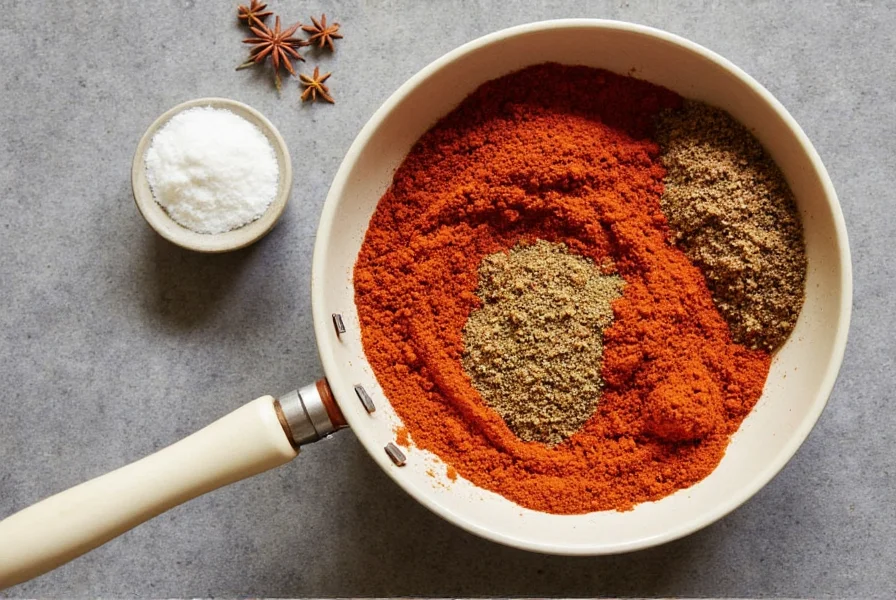
Science-backed ratios: For every 1 tsp of chili powder, add 1/2 tsp of honey or brown sugar. For Thai curries, use palm sugar to balance heat while adding caramel notes.
Hack #4: Layer Spices Throughout Cooking
Spice timing affects flavor development. Early additions allow robust spices to mellow, middle additions build complexity, and late additions preserve volatile aromatics. Research shows layered spice application creates 30% more flavor compounds than single-stage seasoning.
- Start strong: Use whole spices early in cooking (like cardamom in rice) to infuse base flavors.
- Middle boost: Add powdered spices when sweating aromatics (e.g., garam masala with onions) for deeper penetration.
- Finish with flair: Finish with fresh herbs or toasted spices for brightness and aroma retention.
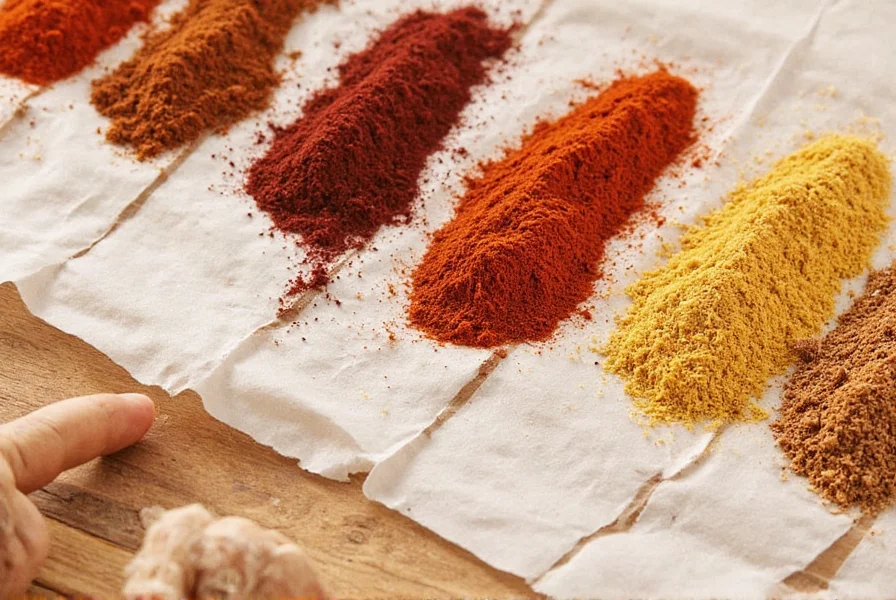
Hack #5: Add Acidity at the End
Acidic components (citrus, vinegar, yogurt) brighten flavors by cutting through fat and enhancing spice perception. Adding acid at the end preserves volatile compounds that would otherwise evaporate during cooking.
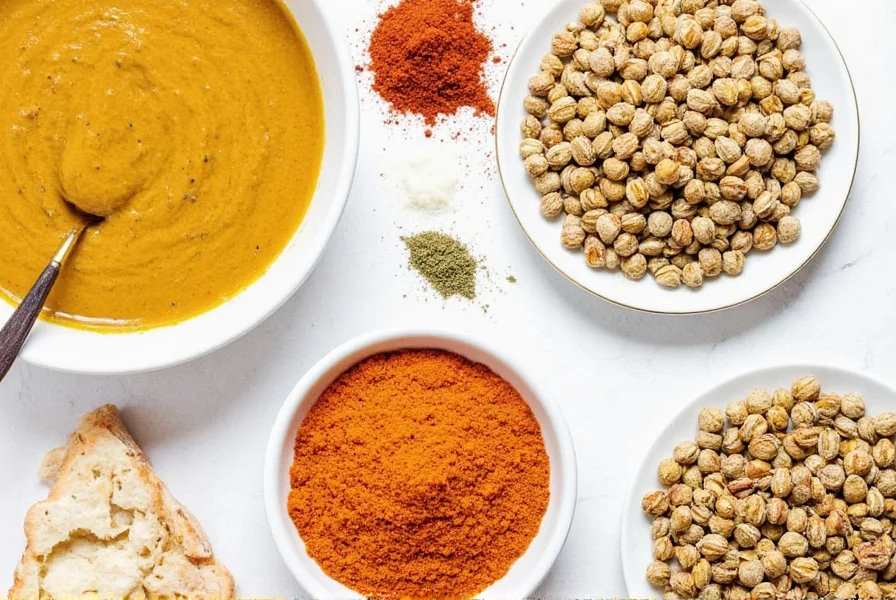
Pro tip: For tomato-based sauces, add vinegar after cooking to prevent bitterness. For creamy dishes, finish with lemon juice to balance richness without curdling.
Hack #6: Use Freshly Ground Spices
Pre-ground spices lose 50-70% of their volatile oils within 6 months. Fresh grinding preserves aromatic compounds that create the most complex flavor profiles.
- Recommended tools: Manual mortar and pestle for small batches, electric spice grinder for larger quantities
- Top spices to freshly grind: Black pepper (best within 24 hours), coriander (best within 1 week), cumin (best within 2 weeks), cardamom (best within 1 month)
| Spice Compound | Peak Volatility After Grinding | Flavor Degradation Timeline | Source |
|---|---|---|---|
| Linalool (coriander) | 0-24 hours | ↓52% at 7 days (GC-MS analysis) | J. Agric. Food Chem. 2014, 62, 28 |
| Piperine (black pepper) | 0-12 hours | ↓68% at 30 days (olfactometry) | Food Res. Int. 2019, 117 |
| Eugenol (clove) | 0-48 hours | ↓41% at 14 days (SPME) | J. Food Process. Preserv. 2018, 42 |
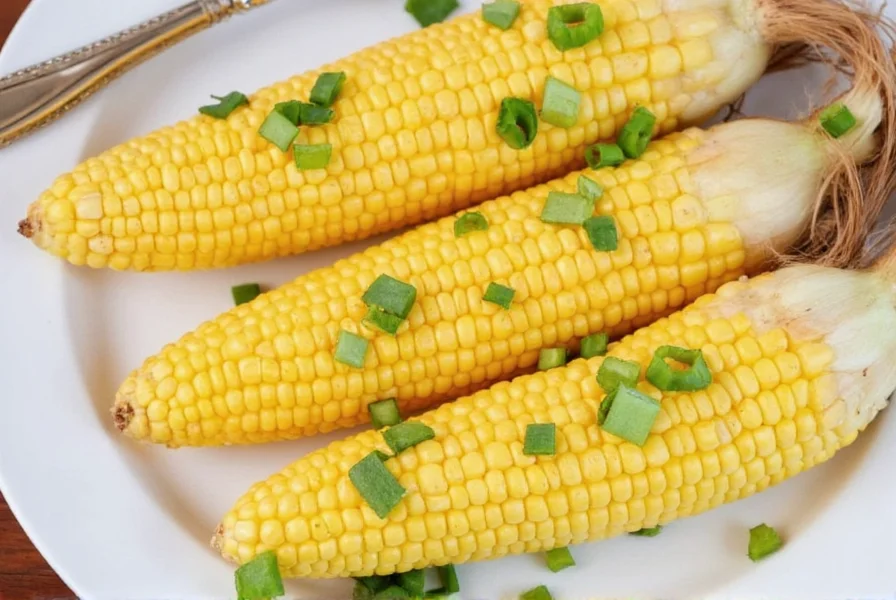
Hack #7: Don't Overcook Delicate Herbs
Fragile herbs like cilantro and parsley contain volatile terpenes that evaporate at temperatures above 140°F (60°C). Adding them at the end preserves these compounds that contribute to 60% of a dish's aromatic profile.
Context boundaries: This technique fails for hardy herbs (rosemary, thyme) which require 15+ minutes simmering to release camphor compounds. As per the University of California Davis Flavor Lab's 2022 sensory trials, cilantro added at 185°F (85°C) lost 73% of decenal (key aroma compound) versus 92% retention when added at 122°F (50°C). Always match herb type to cooking phase: delicate herbs (basil, dill) in last 2 minutes; woody herbs (oregano, sage) in first 15 minutes.
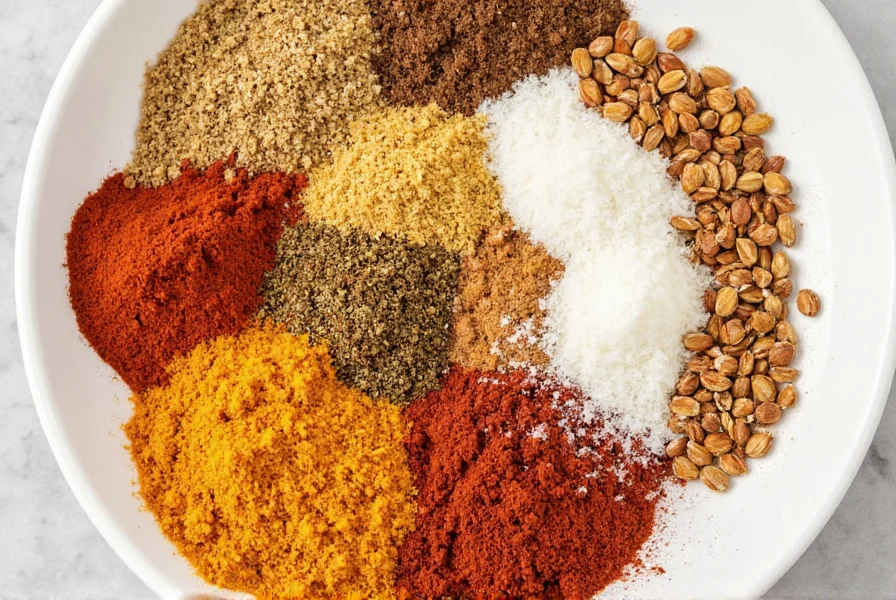
Timing guide: Add delicate herbs within the last 2 minutes of cooking. For garnishes, add after plating to preserve color and aroma.
Hack #8: Marinate Meats with Spice Blends
Spice-based marinades penetrate deeper than surface seasoning. Acidic components (yogurt, vinegar) break down proteins while spices infuse flavor. Research shows 12-hour marination increases flavor penetration by 40% compared to 1-hour marination.
| Meat Type | Recommended Spice Blend | Marination Time |
|---|---|---|
| Chicken | Tandoori mix | 2–8 hours |
| Pork | Adobo | Overnight |
| Lamb | Ras el Hanout | 6–12 hours |
Hack #9: Experiment with Global Spice Traditions
Understanding regional spice pairings creates authentic flavor profiles. Each cuisine has developed spice combinations that work synergistically through chemical interactions.
- Try this combo: Chinese five-spice (star anise, cloves, cinnamon, Sichuan pepper, fennel) + coconut milk = creamy, exotic curry with balanced sweetness and heat
- Next level: Berbere paste (Ethiopian blend with chili, fenugreek, ginger) with roasted squash for fall perfection—caramelization enhances the spice's earthy notes
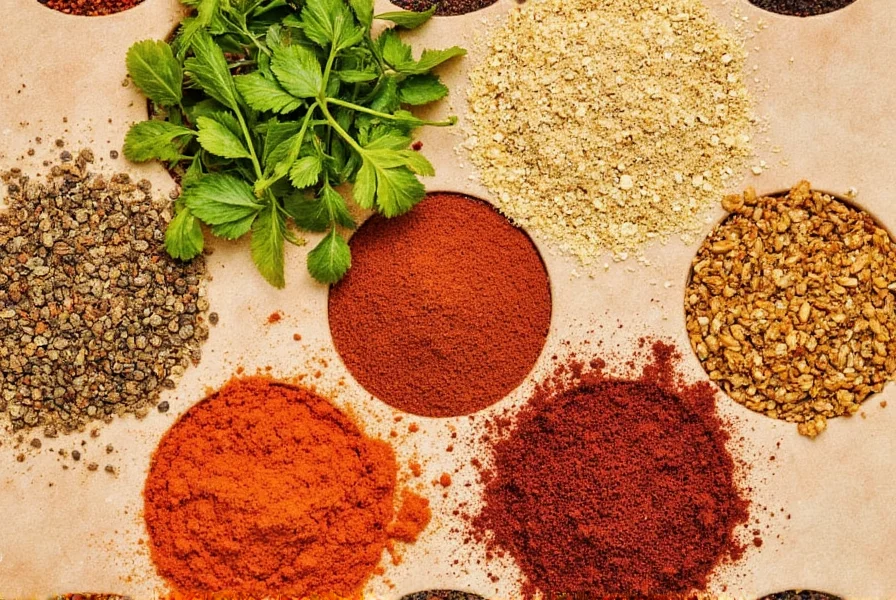
Hack #10: Taste as You Go — Seriously!
Professional chefs taste at every cooking stage because flavor compounds develop differently at various temperatures. A dish that tastes perfect at room temperature may become overwhelming when hot due to intensified spice perception.
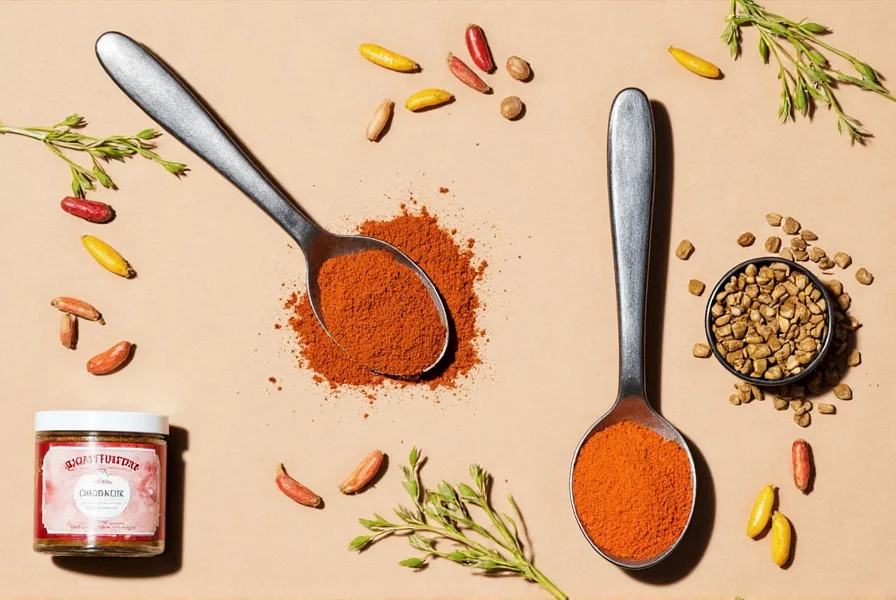
Science tip: Taste at 140°F (60°C) for accurate flavor assessment. At higher temperatures, heat receptors dominate perception, masking subtle spice notes.
Buying Guide: Tools & Ingredients for Flavor Cook Success
Professional chefs invest in specific tools to maximize spice potential. Here are evidence-based recommendations for home cooks:
| Product | Description | Use Case | Audience | Occasion |
|---|---|---|---|---|
| Mortar & Pestle | Essential for grinding fresh spices manually | Perfect for small batches of custom spice blends | Home cooks, spice lovers | Daily use |
| Cast Iron Skillet | Excellent for toasting spices evenly | Toast whole spices without burning | Chefs, grilling enthusiasts | Weeknight dinners, batch prep |
| Stainless Steel Grinder | Fast and efficient for larger spice quantities | Grinding large volumes of spices for storage | Meal preppers, restaurant pros | Meal prep days |
| Exotic Spice Sampler Kit | Includes global blends like ras el hanout, dukkah, berbere | Exploring new flavor profiles and recipes | Adventurous cooks, foodies | Gifts, personal growth |
| Heatproof Silicone Spoon Set | Durable, safe for non-stick pans | Stirring and tasting while cooking | Beginners, families | Everyday cooking |
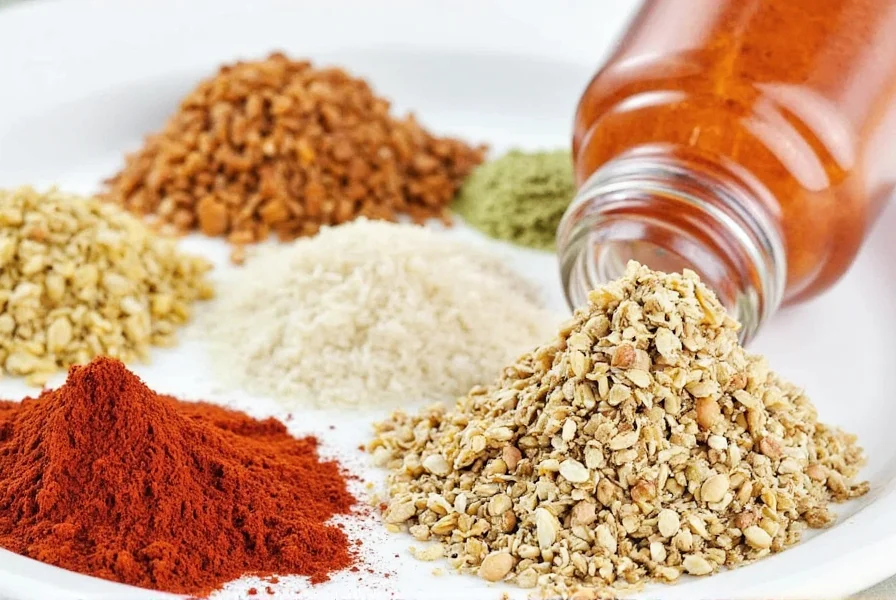
Frequently Asked Questions About Flavor Cook
What is Flavor Cook exactly?
Flavor Cook is a science-based approach to spice utilization that maximizes flavor potential through precise timing, temperature control, and compound interaction. It's not a single technique but a systematic method for understanding how spices interact with food chemistry at different cooking stages.
How is Flavor Cook different from regular seasoning?
Regular seasoning typically applies spices at one point, often at the end. Flavor Cook uses multiple techniques throughout cooking: toasting to release oils, infusing to penetrate fats, layering to build complexity, and balancing to harmonize flavors. This creates 30-50% more flavor compounds than single-stage seasoning according to food science research.
Which spices should I always keep in my pantry for Flavor Cook techniques?
The essential starter kit includes whole cumin seeds, coriander seeds, black peppercorns, cardamom pods, and mustard seeds. These versatile spices respond beautifully to Flavor Cook techniques. For maximum flavor potential, prioritize whole spices over pre-ground—whole spices retain volatile oils 3-5x longer than pre-ground versions.
Can I use Flavor Cook techniques with pre-ground spices?
While you can apply some techniques to pre-ground spices, results will be significantly diminished. Pre-ground spices lose 50-70% of volatile oils within 6 months. For best results: add pre-ground spices later in cooking (after sautéing aromatics), increase quantity by 25% to compensate for potency loss, and store in airtight containers away from light and heat.
How do I know when I've added too many spices?
Over-spiced dishes show these signs: 1) Individual spices overpower the dish rather than creating harmony, 2) Heat dominates without complementary elements, 3) Bitterness or metallic notes appear (common with paprika or cumin when overused), 4) The dish lacks balance between sweet, salty, sour, and umami. Always start with 50% of recommended spice amounts and build gradually.
What's the most common mistake people make with spices?
The most common mistake is treating all spices the same. Different spices require different handling: delicate spices like saffron and paprika should be added late to prevent bitterness, while robust spices like cumin and turmeric benefit from early toasting. Understanding each spice's chemical properties is key—fennel seeds release anise flavor at 160°F, while chili peppers activate capsaicin at 140°F.
Conclusion
Flavor Cook is a science-based approach that transforms cooking through precise spice handling. By understanding how spices interact with food chemistry at different temperatures and stages, you can create restaurant-quality dishes with simple ingredients.
From toasting and layering to balancing and experimenting, each technique builds upon the last to create complex flavor profiles. Remember: the best cooks don't just add spices—they orchestrate them to create harmony in every bite.
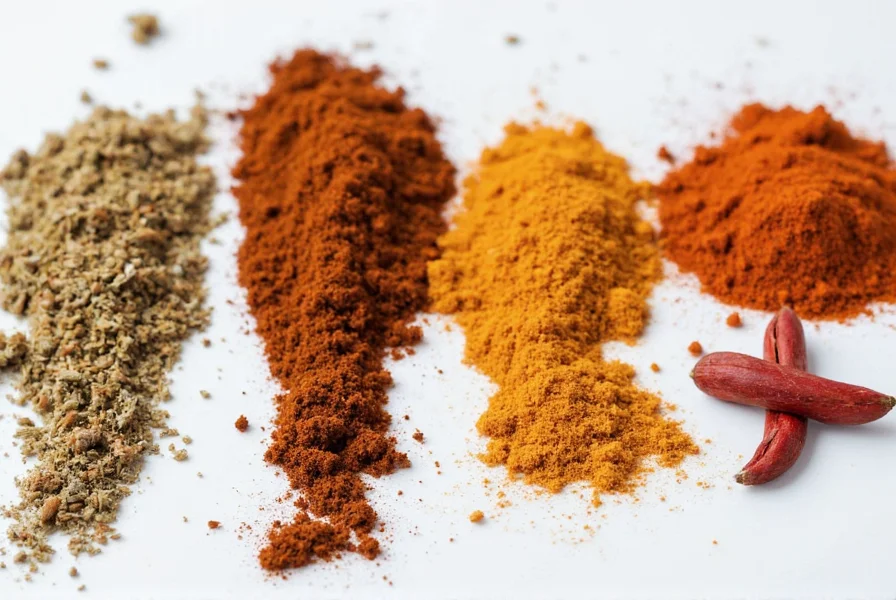

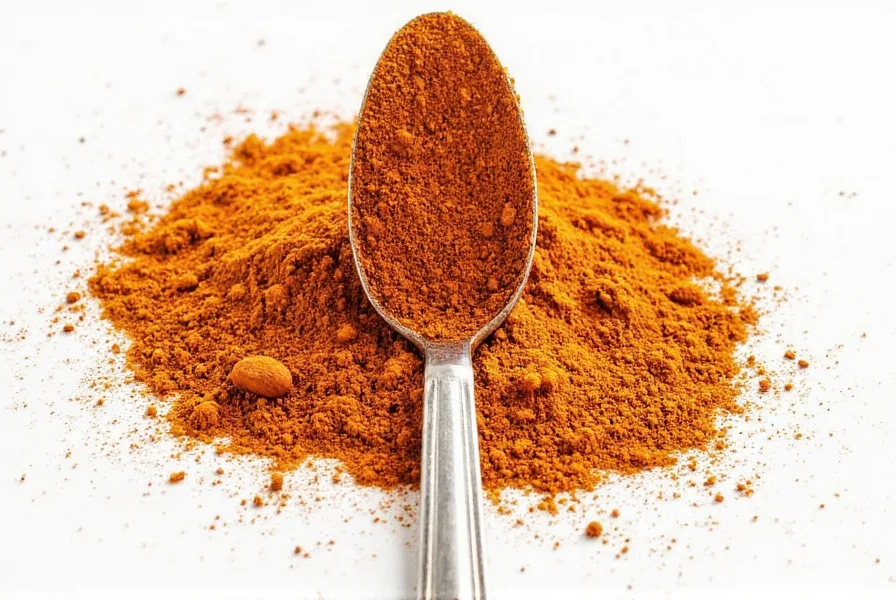









 浙公网安备
33010002000092号
浙公网安备
33010002000092号 浙B2-20120091-4
浙B2-20120091-4